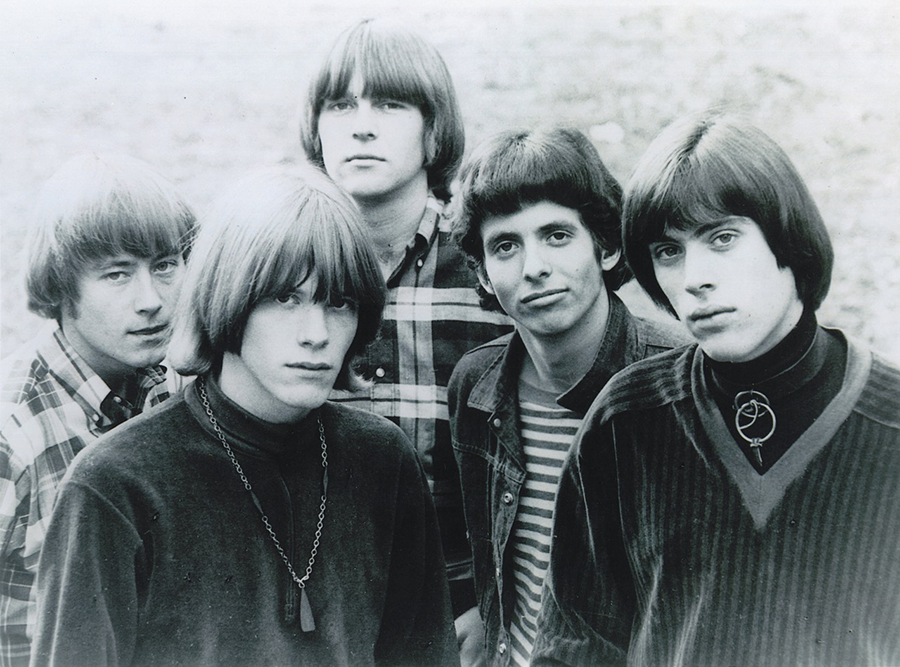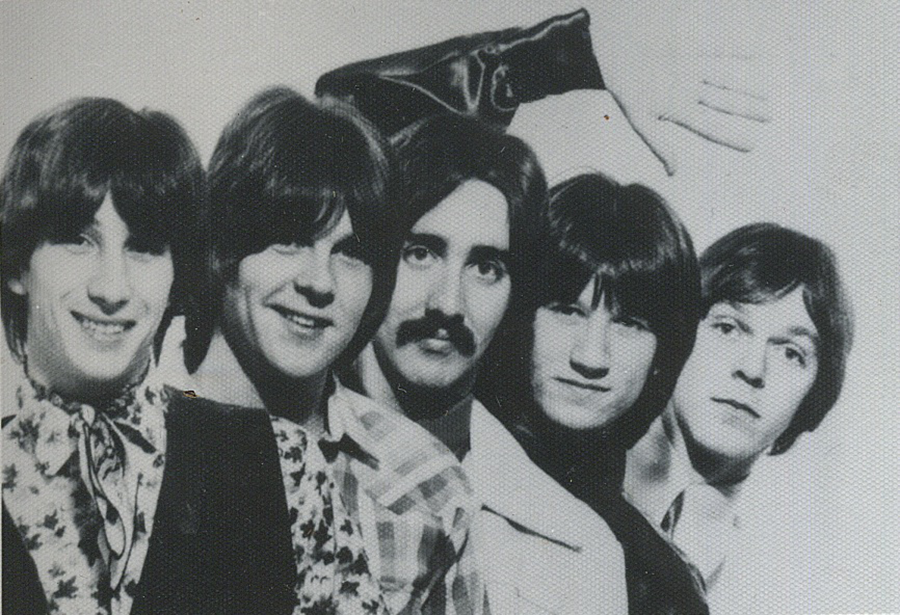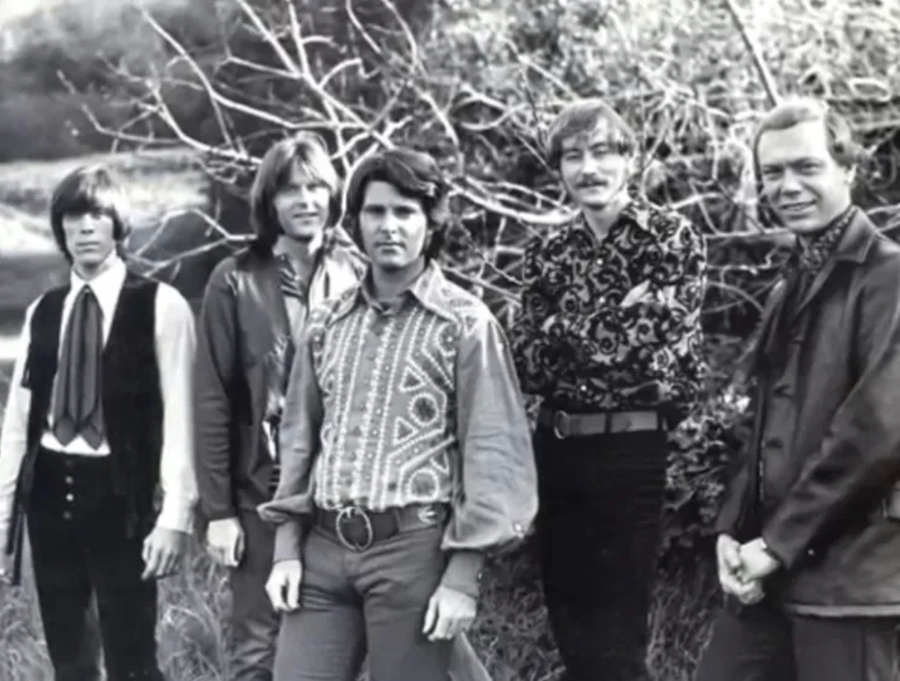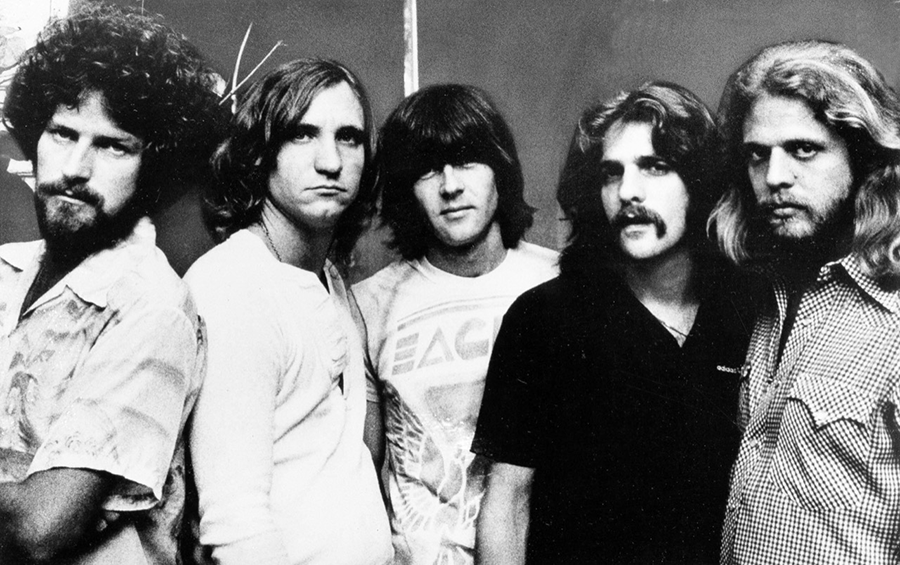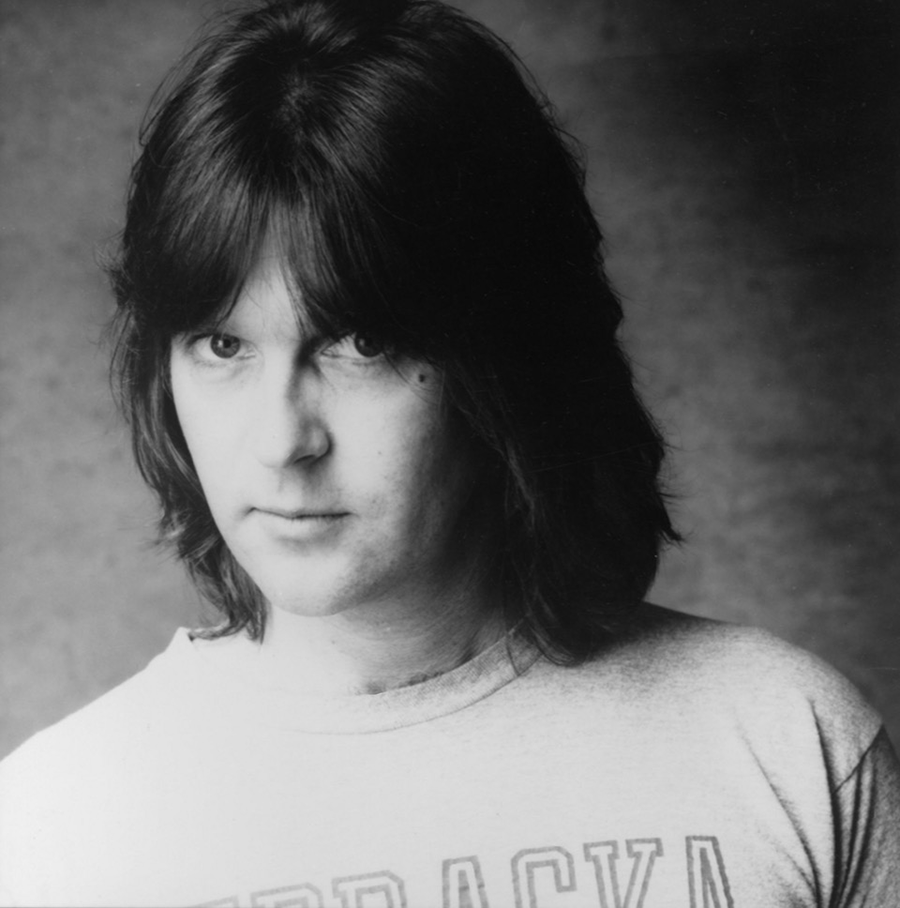Randy Meisner, a creator of the Southern California rock sound as a singer, songwriter and bassist who achieved fame with the Eagles and Poco in the ’70s, died on July 26, 2023. He was 77.
Growing up on a farm near Scottsbluff, Nebraska, Meisner pursued his musical ambitions working clubs and bars throughout the Midwest. An affable, easygoing sort with a sweet high voice, he cut his teeth playing with the Drivin’ Dynamics and arrived in Denver in 1966 to play a battle of the bands. He linked up with one of the competing groups, the Soul Survivors—not the New York-based blue-eyed soul group of “Expressway to Your Heart” fame, but a well-produced pop-rock act that scored two No. 1 hits on Denver’s Top 40 giant KIMN (“Can’t Stand to Be in Love with You” and “Hung Up on Losing”).
“When they lost their bass player, they asked me if I wanted to jump ship and move to Los Angeles with them,” Meisner said. Hard times inspired a name change of his band to the Poor. Meisner shared a space on the living room floor of a one-bedroom apartment with four other people for $85 a month. Gigs were few and far between. “We didn’t realize how much competition was out there,” he recalled. “My jacket was my first pillow. We really had nothing at all.”
The one plus was that the Poor shared management with Buffalo Springfield. When that group disbanded, Jim Messina and Richie Furay formed Poco and recruited Furay’s friend, Rusty Young from Colorado’s Böenzee Cryque. Young called in two buddies from Colorado—drummer George Grantham, also from Böenzee Cryque, and Meisner. Poco’s Pickin’ Up the Pieces debuted in 1969, blending sweet country harmonies with a driving rock beat.
But Meisner left in a dispute over the final mixes to the album. Rick Nelson, a Fifties rock ’n’ roll legend determined to establish an adult identity and gain the respect he deserved as a country-rock musician, marshaled the Stone Canyon Band with Meisner, who contacted lead guitarist Allen Kemp and drummer Patrick Shanahan, his buddies from the Poor, the band that first brought him from Denver. Meisner recorded two albums with the Stone Canyon Band, stacking his vocals in angelic high harmony on top of Nelson’s.
He quit and rejoined, then quit again to hook up with Glenn Frey and Don Henley, deciding to fly with the Eagles. He experienced the high of co-writing and singing the signature hit “Take It to the Limit,” but he left in 1977, disenchanted, to pursue a solo career, giving up the security of one of the country’s top bands.
Meisner recorded a self-titled album in 1978. “It was a revelation,” he said. “I had to do a lot of things I’d never encountered before, like come up with a full album’s worth of songs, sing all the leads and put together my own band. I was very excited, but I wasn’t prepared for what was involved—I left a lot of things up to other people.”
After a brief club tour, which included a performance at the Rainbow Music Hall in Denver, Meisner spent time reflecting in his Nebraska hometown. “I had to take a hard look at myself and my strengths and weaknesses as a musician, my personal and creative barriers. I decided I wanted to make another record, and I was fortunate that things clicked.”
Meisner’s saga resumed with One More Song, produced by Val Garay, a highly reputed engineer with a string of platinum albums by Linda Ronstadt and James Taylor to his credit. Garay introduced Meisner to songwriter Eric Kaz. As a team, Meisner and Kaz came up with two Top 40 standouts—“Deep Inside My Heart,” featuring a guest appearance by Kim Carnes, and the rollicking “Hearts on Fire” with Wendy Waldman on harmonies.
In 1982, Meisner released his third solo album, featuring help from members of Heart and a sonorous single, “Never Been in Love.” In the late ’80s, he toured with the Roberts-Meisner Band, joined by former Firefall singer-songwriter Rick Roberts. Reuniting with Poco for the Legacy album and tour, he sang lead on “Nothin’ to Hide,” a Top 40 single. But Meisner never took part when the Eagles resumed touring; his health deteriorated and he eventually stopped performing. In 2020, he made remote appearances via video with his friend Furay at two livestream concerts.

